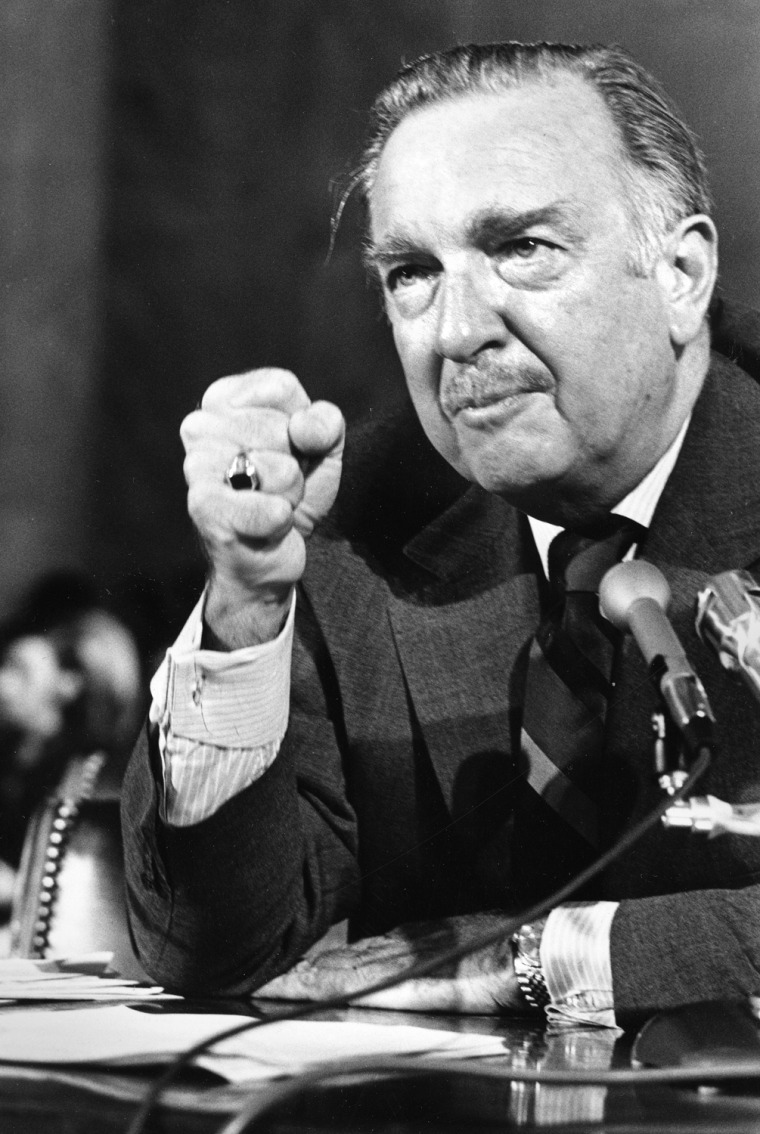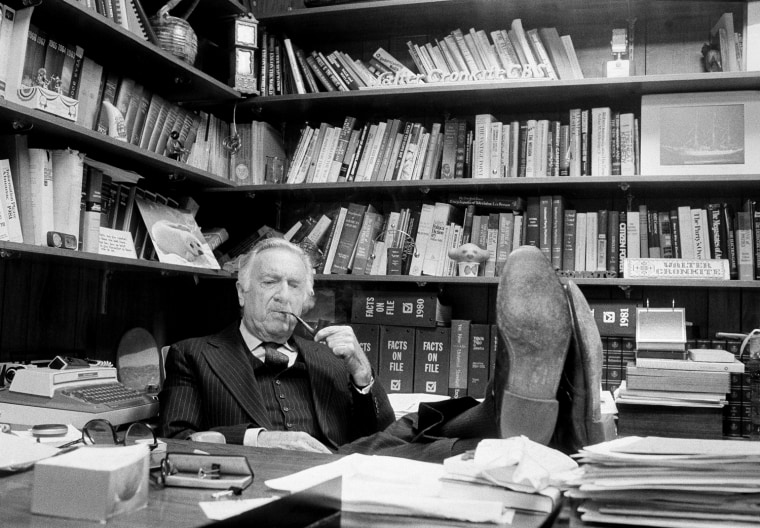Despite what much of the immediate eulogizing suggests, the late Walter Cronkite did not become "the most trusted man in America" by always playing it straight.
To be sure, his nightly newscasts of 1965 (or even 1981) bear almost no resemblance to their distant cable descendants of today, and a Cronkite, time-shifted from any given night's CBS Evening News to the present day, would present a curious mismatch at best - and in many ways a much-needed astringent.
Yet the rest of his work - probably the best of it - would fit in today, or at any other time, and in any medium.
For, as comforting as it is to picture a lost America of just three national television news sources and no market, need, nor tolerance of opinion or analysis, it is historically dubious to do so, and doing so disregards and almost insults a vital component of Mr. Cronkite's talent, success, and value to the nation.
I watched him first when Kennedy was shot; I was nearly five and had only brief bursts of understanding of what I was seeing. But the NASA coverage (experts, broadcasters, and viewers alike then called them "Space Shots") was much more easily understood, and for hours I sat in rapt attention as Cronkite analyzed and questioned and interpreted the mystery and danger of man untethered from earth. Thus I followed him to the Evening News, and the Vietnam program, and the political conventions of '68, and '72, and '76.
Therefore what I remember and appreciate him most for, was the kind of perspective and

interpretation that he often provided, or at least enabled from others, in what was a direct precursor to the very kind of newscasting that has succeeded the "that's the way it is" approach. Remember him after a Nixon speech, or at a Convention, or after a space shot, or after JFK was murdered. Those were broadcasts of facts and analysis, in which he would seek opinion and even express it himself.
But proportionately, he took just as much criticism then as we do now. When Vice President Spiro Agnew took some of Pat Buchanan's earliest words of nearly-xenophobic paranoia and gave voice to the idea of the media elite, unelected and not beholden to anyone, to whom do you think he was referring? Who perfected what was often derisively called "Instant Analysis" after a speech or news conference? Who angrily said of the security men who battered Dan Rather in Chicago in '68, "I think we've got a bunch of thugs down there"? Or, more gently, who were his contemporaries Bob Elliott and Ray Goulding kidding when they joked, "Now, to tell us what the President just said..."?
Walter Cronkite was not a dispassionate statue on air. When the risk of living up to the phrase "and that's the way it is" was far greater than it is now, he choked up when Kennedy died, laughed and beamed when Armstrong and Aldrin landed on the moon, and defined objectivity by not worshipping the false god of fair and balanced when he reached the stalemate conclusion about Vietnam in the 1968 newscasts that provided Lyndon Johnson with his cue to exit the stage.
The "most trusted man" honor didn't spring from just reading a series of slightly-interconnected facts. It was earned by the willingness to analyze, and an audience's belief that the analysis would be honest and only in the interest of them, and of the truth.
